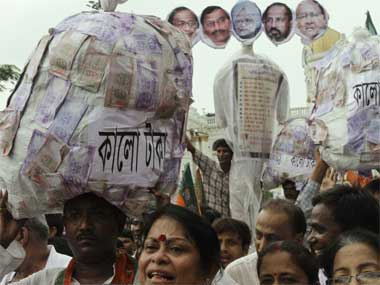The long standing tussle on the issue of protection of central government officials from investigating agencies, between the Supreme Court and successive central governments is likely to be renewed with the central government’s recent approval of the changes proposed in the Prevention of Corruption (Amendment) Bill, 2013. The changes are to be made in the Prevention of Corruption Act 1988. The amendment was initially introduced in the Rajya Sabha in 2013 during UPA-II regime. The contentious issue of making it mandatory for investigative agencies covered under the Delhi Special Police Establishment Act, (DSPEA) 1946 such as CBI to seek permission from central government before initiating investigations against central government employees, has been adjudged upon by the supreme court repeatedly in the past. This provision covered under Section 6A was originally inserted in the DPSEA, 1946 by the Central Vigilance Commission (CVC) Act, 2003. Before this insertion a similar provision was contained in a directive called “Single Directive” which was issued by various ministries and departments to CBI regarding “modalities of initiating inquires or investigations against certain categories of civil servants”. All these provisions, amendments and directives have been proposed by successive governments on the premise of protecting important decision-making level officers from malicious and vexatious investigations and inquiries. [caption id=“attachment_2379480” align=“alignleft” width=“380”]  Representational image. AP[/caption] While in 1997 the Single Directive was quashed by the supreme court in the Vineet Narain and others vs Union of India judgment, only within a few months this provision was sought to be inserted by the Central Vigilance Commission Ordinance in 1998. This upon the intervention of the Supreme Court was deleted by issue of another ordinance a few more months later. In 2003 with the CVC act 2003 the provision was yet again sought to be inserted in the DSPEA which was challenged in 2004 citing the issue of constitutional validity of the provision. The issue makes for strange bedfellows in BJP as in 1997 current BJP MP Subramanian Swamy had also filed a writ challenging the constitutional validity of this section. The validity of the section was challenged citing the Article 14 of the constitution guaranteeing fundamental right of “equality before the law”. The court in its 2004 order raised objections on the distinction made between decision making officers and others for the purpose of inquiry or investigation into an offence under the PC Act 1988. The court observed that with this provision “there will be no confidentiality and insulation of the investigating agency from political and bureaucratic control and influence because the approval is to be taken from the Central Government which would involve leaks and disclosures at every stage.” The bench added that any powers to make inference for initiating inquiry or investigation into any matter must rest with CBI itself without any external aid or advice. It reiterated the “signature tune” from Vineet Narain case, “However high you may be, the law is above you.” The court also observed that Section 19 of the PC Act 1988 which bars any court from taking cognisance of corruption cases against public servants under relevant sections without the sanction from state or central governments respectively anyway protects public servants against undue harassments or vexations. Besides these changes should also be seen in the light of certain key provisions of the ‘United Nations Convention Against Corruption’ which the Indian government ratified in 2011. Article 8 of the convention mandates ensuring disciplinary measures against corrupt public officials and article 36 says that necessary independence should be granted to investigating agencies working against corruption to carry out their functions “effectively and without any undue influence”. With the provision of seeking approval from the government for investigation against public employees made mandatory it appears prima facie that the clause of “necessary independence” has been compromised. While the government is talking tough on the issue of corruption these days, this move seems to run counter to its own claims of coming down on corruption heavy-handedly. At the same time this being yet another attempt to introduce this provision in the anti-graft bill, which the Supreme Court has in the past taken serious objection to, the issue might yet again make it to the doors of the highest court of India and open another round of contention between the executive and the judiciary.
Besides these changes should also be seen in the light of certain key provisions of the ‘United Nations Convention Against Corruption’ which the Indian government ratified in 2011.
Advertisement
End of Article


)

)
)
)
)
)
)
)
)



